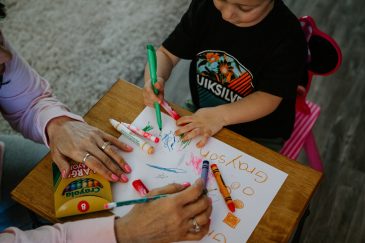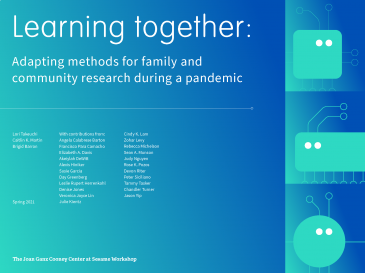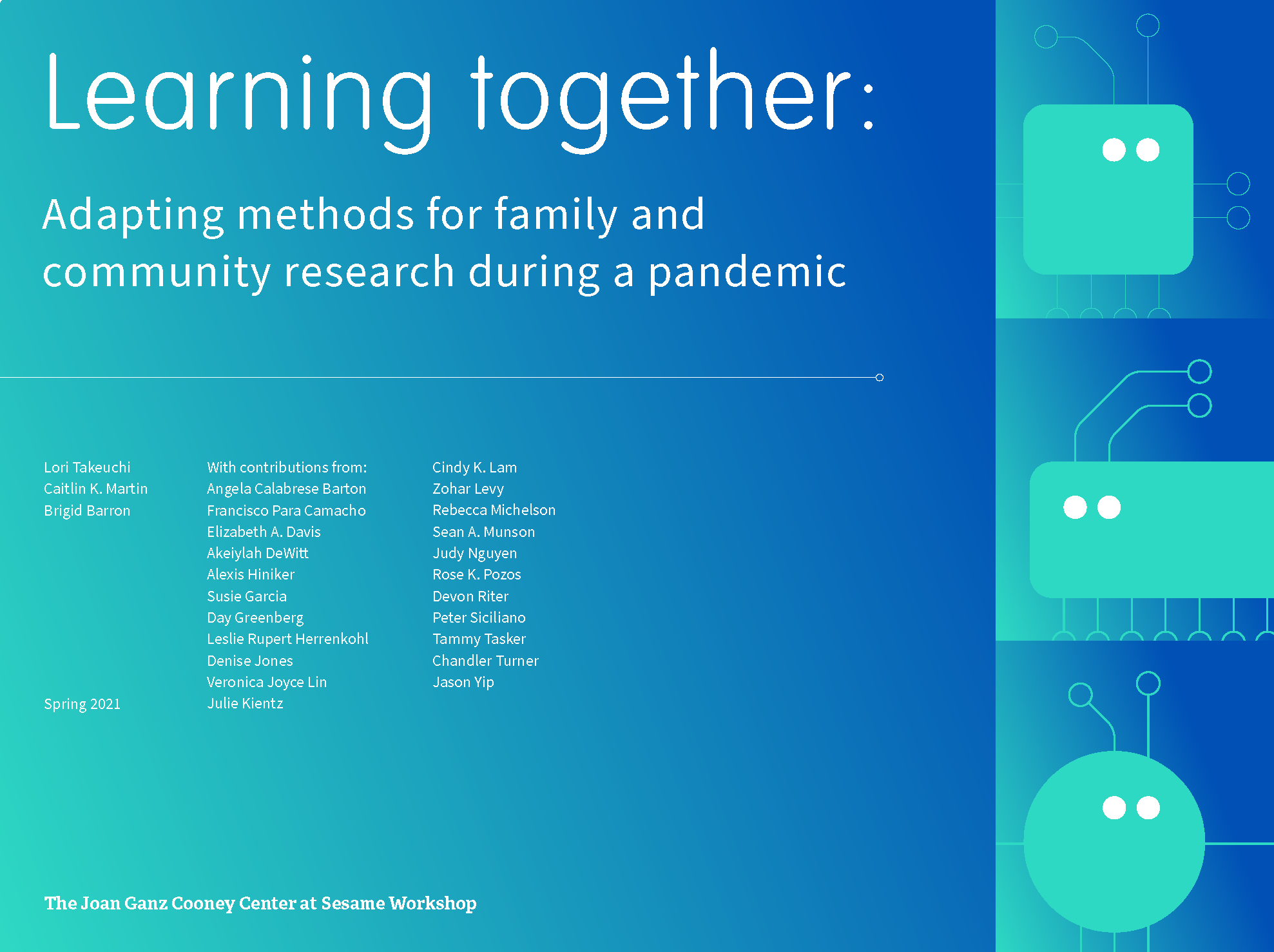
In the spring of 2020, schools across the country abruptly shut their doors, sending more than 50 million students home until further notice. Amidst the initial chaos and fear of the COVID-19 pandemic’s early days, caregivers were thrust into new roles as co-teachers as children struggled to adapt to the remote learning arrangements hurriedly set up by school districts in order to finish the academic year. How were families coping?
Researchers across a variety of disciplines recognized the urgent need for understanding how the effects of this global rush towards remote school could be affecting students’ physical and emotional health, family dynamics, and teacher preparation and support. Several large-scale surveys documented that students from low-income and marginalized populations were particularly strained by online learning. However, finer-grained, qualitative approaches are often needed for interpreting broad trends revealed through survey research and are critical for illuminating the innovative ways that families and communities are supporting learning and wellbeing during these uncertain times. With traditional methods of in-depth family research, such as home visits, no longer possible, how were researchers carrying out rich qualitative investigations remotely?
In March 2020, NSF invited researchers to apply through its Rapid Response Research (RAPID) program for funding to “encourage the development of processes and actions to address” challenges raised by COVID-19. Several of the projects awarded funding used qualitative remote data collection methods to study learning as it naturally unfolded during the pandemic. In July 2020, Dr. Brigid Barron and her team at Stanford University’s Graduate School of Education in collaboration with the Joan Ganz Cooney Center convened a virtual workshop to mobilize this community of researchers exploring innovative methods for studying how children were learning at home during the pandemic. The resulting work highlights researchers and families learning together, as families adapted their practices and researchers adjusted their methods in response to the pandemic-driven reality.

Featuring case studies of research projects from Stanford University, University of Michigan, and University of Washington, Learning Together details the methods that these teams used to recruit, communicate, and collaborate with parents and caregivers during the course of their studies. It also foregrounds the perspectives of unique families and communities from a range of cultural and geographical backgrounds and environments.
- The Stanford team used an existing research platform to rapidly recruit 109 families learning at home and asked caregivers to use the app to document daily learning moments and reflections about how things were going through text, video, photographs, and comments.
- The University of Washington team engaged 30 families in discussion and codesign on Slack. Researchers posted a weekly activity prompt and families jumped in on their own time, posting, reviewing, and building off of each others’ work.
- The University of Michigan team utilized long-term research-practice partnerships to learn from and with 60 community partners (including educators, parents, and young people). Together, researchers and participants developed data collection strategies, including remote participatory interviews and experience sampling, and analyzed results.
Several salient opportunities and challenges specific to employing online tools for conducting remote qualitative research were apparent across the studies. Remote approaches offered greater and more convenient access to families and their lived environments, as well as the ability to collect a large qualitative multimedia dataset in a relatively short time frame. At the same time, new challenges emerged that must be considered for future remote research, such as data ownership, amount and quality of data collected, and access to participants with little to no internet connectivity.
In this report, we summarize the strategies and insights generated at this workshop so that we may share them among a wider network of researchers, practitioners, funders, and policymakers concerned with achieving more equitable educational outcomes during and beyond the pandemic lockdowns. Specifically, our report aims to:
- Provide examples of how researchers are repurposing and reinventing qualitative methods for remote contexts with the aim of expanding and improving these methods for future studies;
- Highlight how families and communities are innovating and adjusting to the pandemic and how these adjustments are shaping learning and wellbeing in unexpected ways;
- Convey on-the-ground perspectives from caregivers and learners about the challenges of remote learning and inspire solutions to solve them; and
- Mobilize collaborative efforts for future research and design.
Caitlin K. Martin is a senior researcher with Barron’s lab at Stanford University and is an independent research and evaluation consultant focusing on out-of-school learning and data visualization.
Rose K. Pozos is a PhD candidate at Stanford University in the Learning Sciences and Technology Design program, where she studies everyday family learning.

